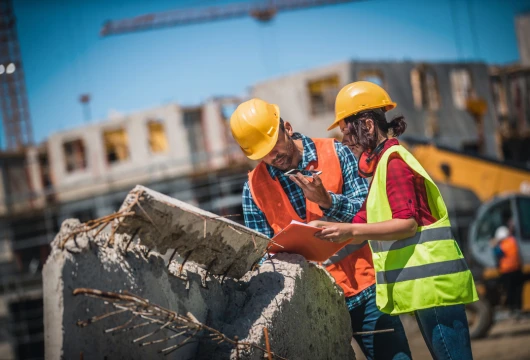ADB and India Partner for $200 Million Solid Waste Management Initiative
In a significant step towards sustainable urban development, the Asian Development Bank (ADB) has extended a $200 million loan to the Government of India to improve solid waste management across 100 cities. This initiative, a crucial part of the Swachh Bharat Mission 2.0 – Comprehensive Municipal Waste Management in Indian Cities Program, is designed to enhance the country’s waste management and sanitation infrastructure, aligning with the national objective of a cleaner, greener India.
Transforming Urban Waste Management Across 100 Cities
The partnership between ADB and India is poised to bring about a transformative change in how urban waste is managed across the country. With this financial backing, 100 cities across eight states will see the establishment and upgrade of essential solid waste processing and management facilities. These will include bio-methanation plants, composting facilities, managed landfills, and plastic waste processing centers. The initiative will also focus on setting up community toilets and urinals, along with purchasing modern sweeping equipment to maintain urban hygiene standards. This transformation promises a cleaner, greener, and more sustainable future for India’s urban centers.
Juhi Mukherjee, Joint Secretary of the Finance Ministry, and Mio Oka, Country Director for ADB’s India Resident Mission, formally agreed upon the program. This collaboration signifies a strategic move to enhance India’s urban infrastructure, incorporating global best practices and state-of-the-art technology. As Mio Oka noted, “This program is guided by lessons derived from ADB’s experience in urban infrastructure development across several states and will incorporate international best practices, new digital technologies, and mainstream climate- and disaster-resilient approaches in municipal solid waste management to promote a clean environment free from garbage and pollution.”
Empowering Urban Local Bodies for Sustainable Management
A vital element of this initiative is its focus on building the capacity of urban local bodies (ULBs) in waste management and sanitation. This capacity-building effort will ensure that ULBs have the knowledge, skills, and resources to manage urban waste efficiently. The program will help create a robust framework for sustainable urban waste management by fostering peer-to-peer learning and proactively engaging with the private sector.
The initiative will include annual reviews and progress updates on city-wide solid waste and sanitation action plans. These reviews will ensure that the cities are on track to meet their waste management goals and that any challenges are addressed promptly.
Adopting Climate-Resilient and Inclusive Approaches
One of the standout features of this program is its emphasis on climate resilience and social inclusion. The infrastructure developed under this initiative will not only be designed to withstand climate-related challenges but will also be responsive to the needs of all segments of society, including women, the elderly, and differently-abled individuals. This inclusive approach ensures that everyone’s needs are considered and valued in the waste management process.
The program’s approach to climate resilience is critical given the increasing frequency of extreme weather events and the ongoing challenges posed by climate change. By integrating climate-resilient features into urban waste management systems, the initiative aims to ensure that cities can continue to function effectively despite environmental stresses.
Driving Technological Innovation in Waste Management
The ADB-funded program is also set to drive technological innovation in waste management. The use of advanced digital technologies will play a critical role in optimizing waste processing and management systems. These technologies will enable real-time monitoring and management of waste processing facilities, ensuring that they operate at peak efficiency and that any issues are identified and resolved quickly. This technological backbone provides reassurance about the program’s efficiency and effectiveness.
Adopting digital technologies will also facilitate the tracking and managing of waste from collection to disposal, ensuring greater transparency and accountability in the waste management process. This will be particularly important in cities where waste management systems have traditionally been less efficient.
A Step Towards a Cleaner, Greener India
The ADB’s $200 million loan to India for solid waste management is more than just a financial transaction; it represents a commitment to a cleaner, more sustainable future for the country’s urban centers. By addressing the challenges of urban waste management head-on, this initiative will help create healthier, more livable cities for millions across India.
Moreover, the program’s focus on sustainability and inclusivity aligns with the broader goals of the Swachh Bharat Mission 2.0, which aims to make India cleaner and more environmentally friendly. By supporting the establishment of waste processing facilities and the development of climate-resilient infrastructure, the initiative is set to have a lasting impact on India’s urban landscape.
The Future of Urban Waste Management in India
As India continues to urbanize rapidly, the challenges of managing urban waste are only expected to grow. However, with initiatives like the ADB-funded solid waste management program, the country is taking proactive steps to address these challenges and build a more sustainable future.
The success of this program could serve as a model for other countries facing similar challenges in urban waste management. By combining financial support with technological innovation and capacity building, the program offers a comprehensive approach to addressing one of the most pressing issues facing urban centers today.
ADB’s $200 million loan to India is a significant milestone in the country’s journey towards sustainable urban development. Through this initiative, India is enhancing its waste management infrastructure and setting the stage for a cleaner, greener, and more resilient urban future.
For more in-depth analysis and inspiring climate news, click here

